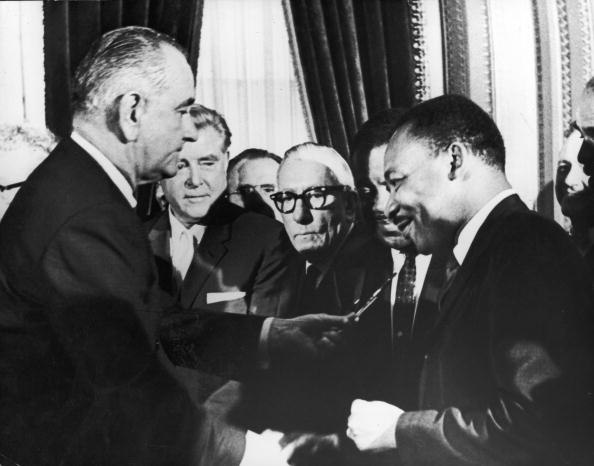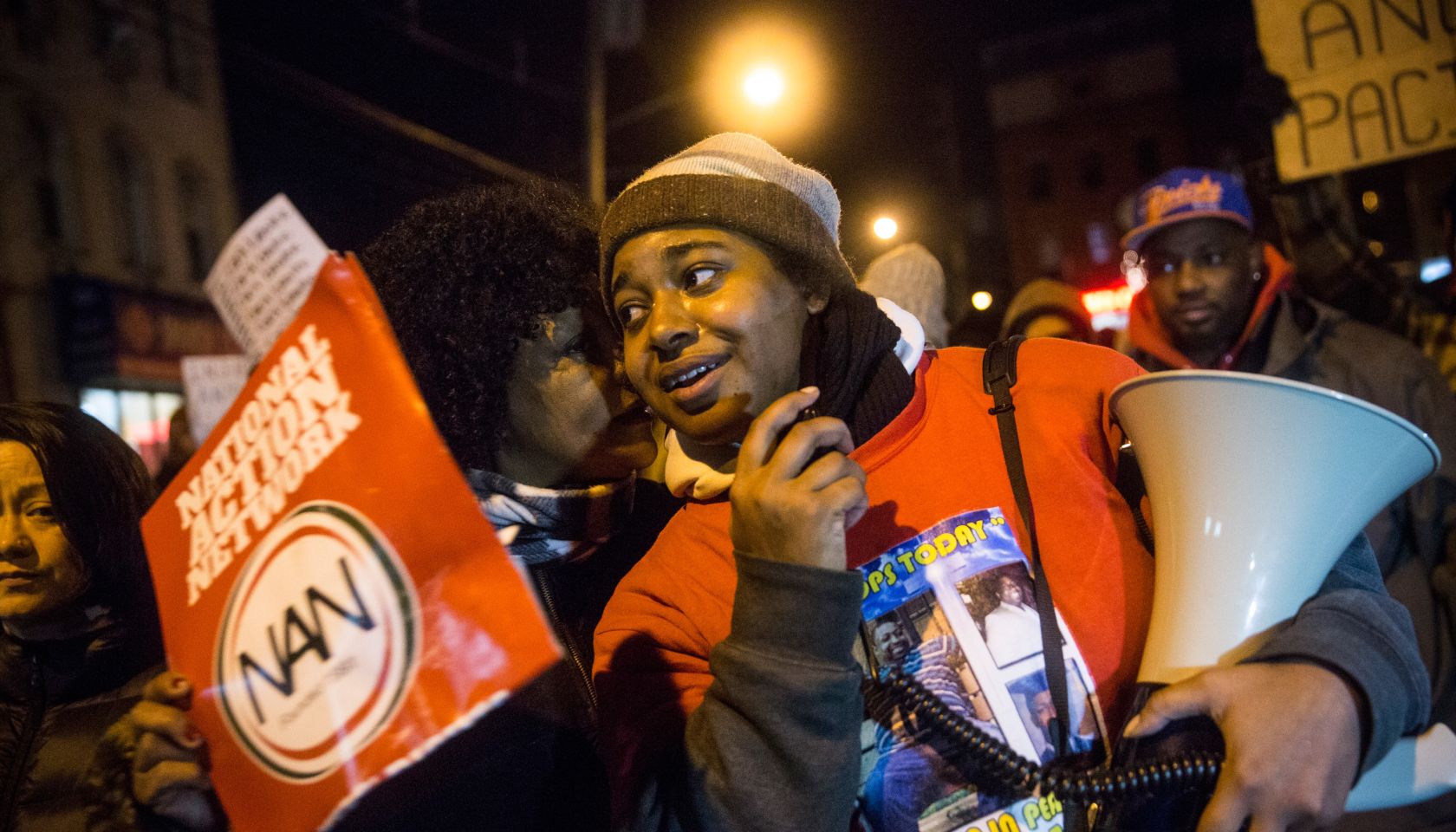Voting Rights Act Was Signed On This Day. It Remains Under Attack
The Voting Rights Act Was Signed On This Day. 56 Years Later, It Remains Under Attack

President Lyndon B. Johnson hands a pen to Rev. Dr. Martin Luther King Jr. during the signing of the voting rights act as officials look on behind them in Washington, D.C., on Aug. 6, 1965. | Source: Washington Bureau / Getty
UPDATED: 11:45 a.m. Aug. 6, 2021 —
On Aug. 6, 1965, with Dr. Martin Luther King Jr. by his side, President Lyndon B. Johnson signed the Voting Rights Act. The law abolished restrictions on Black Americans voting in federal, state and local elections. Fifty-six years later, the Voting Rights Act remains under attack as legislation to strengthen it stalls in Congress as Republican-led states make it harder to legally cast ballots.
Picking up where former President Donald Trump left off, a series of states have passed voting laws that have been called racist for the disproportionate effect Black and brown voters are expected to experience because of them.
Chief among the current issues at hand is the John Lewis Voting Rights Advancement Act, proposed legislation named for the late Congressman who dedicated his life to voting rights.
If passed, it would restore and strengthen Section 5 of the Voting Rights Act of 1965 which was all but eliminated by the U.S. Supreme Court’s ruling on Shelby County v. Holder that allows places with a history of voter discrimination to continue their ways unless the federal government intervenes.
Specifically, “The John Lewis Voting Rights Advancement Act responds to current conditions in voting today by restoring the full protections of the original, bipartisan Voting Rights Act of 1965, which was last reauthorized by Congress in 2006, but gutted by the Supreme Court in 2013,” the bill’s language says.
First proposed in 2019 by Alabama Rep. Terri Sewell, the legislation has languished since the last administration and continued to stall even as Democrats in 2021 enjoy the rare supermajority — control of both chambers of Congress and the White House. That’s largely due to the awareness of Republicans’ eagerness to wield the filibuster to block any Democratic-led bills.
“Now, we must meet the current moment — to strengthen the Act and to repair the damage wrought by Supreme Court decisions and the wave of voter suppression laws now advanced by states to keep Black voters from full participation in the political process,” the NAACP Legal Defense Fund (LDF) said in a statement emailed to NewsOne. “LDF remains committed as we have since our founding to using every tool available to protect, secure, and defend the right to vote for the communities we represent. No political obstruction, no Senate procedural rule, no arbitrary demand of any political leaders can be permitted to overcome the constitutional right of Black voters.
Passing the John Lewis Voting Rights Advancement Act could be one of the few ways for Democrats to try to even the voting field that has been upended by the growing number of states placing increased restrictions on access to the ballot.
Reducing the locations and use of secure drop boxes for absentee ballots, prohibiting the use of mobile voting to ease long lines and allowing for state takeover of local boards of election — like what has happened in Georgia, which Lewis represented in Congress for more than 30 years — will make it harder for people to vote in states that helped Joe Biden beat Trump last November.
To refresh your memories, the Trump administration in 2017 took deliberate steps to end the Voting Rights Act, including the Department of Justice sending a letter to all 50 states announcing “we are reviewing voter registration list maintenance procedures in each state covered by the NVRA [National Voter Registration Act]” and suggesting a purge of voter rolls.
On the flip side, Biden’s DOJ has made strides toward upholding the Voting Rights Act by suing Georgia for knowingly passing a racist voting law that “particularly” affects Black people.
Several provisions in Georgia’s new law limit voter participation by requiring those voting by absentee ballot to submit a copy of their ID, reduces the locations and use of secure drop boxes, prohibits the use of mobile voting to ease long lines and allows for state takeover of local boards of election.
The DOJ’s lawsuit suggests there will be others filed against any of the more than a dozen other states that have enacted at least 20 new laws that make it harder to vote.
U.S. Attorney general Merrick Garland, who announced the lawsuit against Georgia, penned an op-ed in the Washington Post on Friday pressuring Congress to protect the right to vote.
“On this anniversary of the Voting Rights Act, we must say again that it is not right to erect barriers that make it harder for millions of eligible Americans to vote,” Garland wrote. “And it is time for Congress to act again to protect that fundamental right.”
SEE ALSO:
















